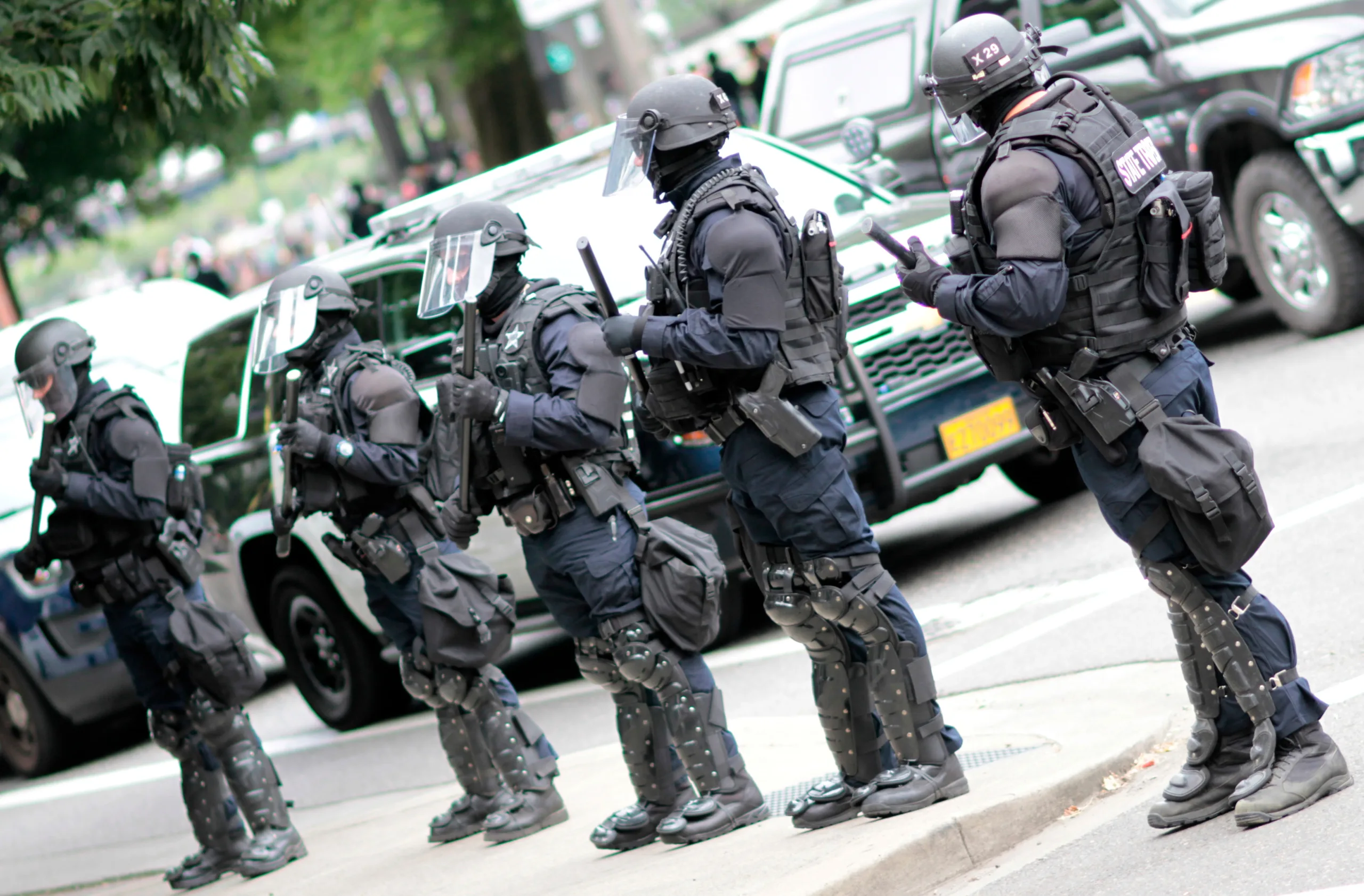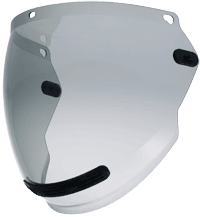Law enforcement officers face all sorts of potential on-the-job hazards. The fact is, to keep the public safe, officers often put their own physical well-being at risk. In a riot or civil disturbance situation, any number of personal injuries can occur. It’s critical that officers in these situations have personal protective equipment (PPE) that offers maximum protection while allowing them to perform their job effectively. Tactical PPE must meet all applicable national safety standards in design and performance. In the case of helmets and face shields, the performance must meet/exceed the NIJ 0104.02 standard, which establishes requirements and test methods for helmets and face shields to be worn by police officers during civil disturbances, riots, or other situations that threaten injuries to the head and face.

NIJ 0104.02 was established by the National Institute of Justice (NIJ), the research, development, and evaluation agency of the U.S. Department of Justice, for testing and certifying tactical helmets. These helmets are designed to protect law enforcement, military personnel, and other tactical units from various ballistic threats and impacts. The standard covers multiple protection features of helmets, including resistance to penetration and deformation.
The standard also addresses the requirements for face shield attachments, which are crucial components of a comprehensive head protection system. As such, the face shield attachment must undergo rigorous testing to ensure its effectiveness and safety.
Some key elements of the testing process for face shields include:
- Impact Performance: Face shields are subjected to impact testing, such as being dropped from specific heights onto various surfaces to simulate real-world riot conditions. The face shield must demonstrate the ability to withstand these impacts without cracking or compromising the protection it offers. Furthermore, the face shield should resist penetration from sharp objects like knives and other pointed implements.
- Optical Quality: It is essential for face shields to provide clear and distortion-free vision to the officer. The standard assesses the optical quality of the materials used in the face shield, ensuring that they do not hinder the wearer’s ability to identify threats accurately. This includes requirements related to refractive power, astigmatism, and light transmittance.
- Fragmentation Resistance: In addition to ballistic threats, face shields are tested for their ability to resist fragmentation. This is crucial because during an explosive event, fragments can pose a significant risk to the wearer’s face and eyes.
- Durability and Retention: Face shield attachments are evaluated for their overall durability and retention to ensure they remain securely attached to the helmet during normal use. The standard requires the face shield to stay in place even under challenging conditions.
- Environmental and Chemical Resistance: Face shield attachments must be tested for resistance to environmental factors like temperature variations, humidity, and exposure to chemicals. This is to ensure that the material remains intact and effective throughout the helmet’s service life.
Once a face shield passes all the required tests and meets the criteria specified in the NIJ 0104.02 standard, it can be considered certified for use with tactical helmets. This certification provides confidence to law enforcement and military personnel that the face shield offers the necessary protection and performance levels required for their operational needs.
The NIJ 0104.02 standard plays a critical role in defining the requirements and evaluation procedures for tactical helmets with face shields. Paulson has been developing such face shields for decades, trusted around the globe for their quality and durability. We also partner with the top tactical helmet manufacturers to ensure our face shields adapt to the ever evolving and innovative helmet market. We’re proud to offer Made in the U.S.A. tactical face shields that meet the NIJ 0104.02 standard, helping to ensure law enforcement officers can get home safely each day.
To learn more about the NIJ 0104.02 standard or the tactical products we manufacture, please contact us today.



